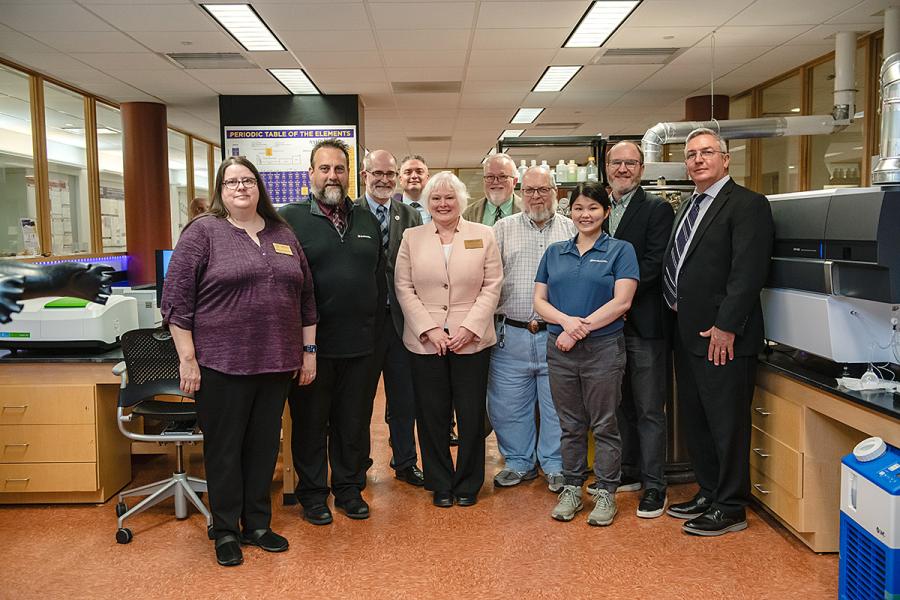
AU partnership with Shimadzu results in $500,000 science equipment upgrade, new educational opportunities
ASHLAND, Ohio – Ashland University has entered into a formal partnership with Shimadzu, a multinational leader in the manufacturing of precision scientific equipment, that will transform AU’s capability for research and teaching within the College of Arts and Sciences.
AU has acquired four new Shimadzu scientific instruments, valued at more than $500,000, that have been installed in the Kettering Science Center. In addition, AU is now a SPARQ partner, which stands for Shimadzu Program for Academics, Research and Quality of Life, an exclusive, invitation-only opportunity of which few schools in the United States are granted access.
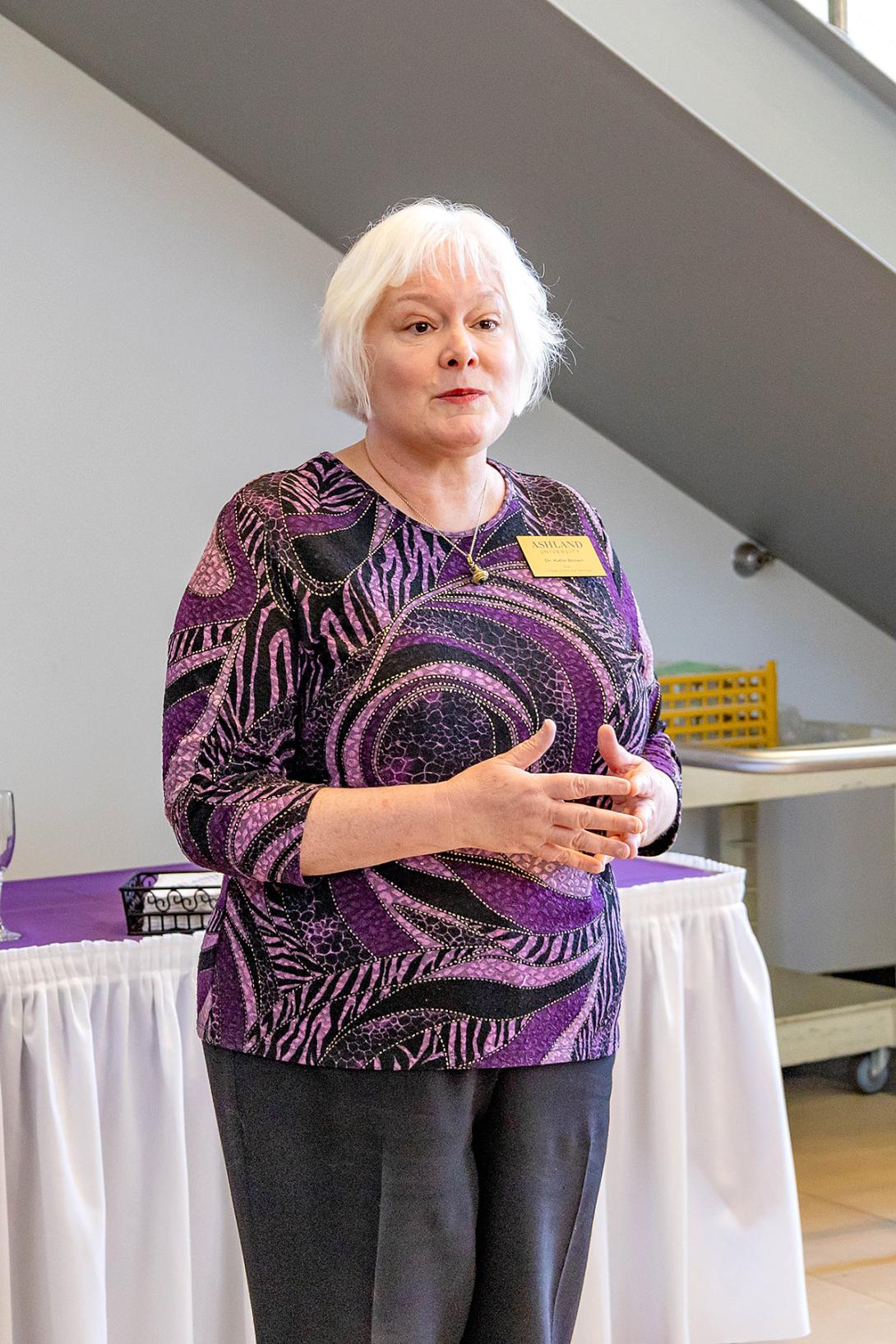
“I am delighted to work with Shimadzu Scientific Instruments to enhance the Kettering Labs because the SPARQ program represents a true partnership,” stated Katie Brown, Ph.D., dean of AU’s College of Arts and Sciences. “Shimadzu has worked closely with our faculty and staff to ensure that the selection of instruments is catered to our student learning outcomes. Shimadzu also ensures that our faculty will have the support they need to make the most effective use of the new equipment in both teaching and research. These new instruments will significantly expand the topics and methods that our faculty and students can explore in their research projects.”
“We at Shimadzu are very excited for this SPARQ partnership with Ashland University and to see how the faculty and students expand their research experience. Ashland now has a state-of-the-art lab that ensures any testing needs are within their capabilities,” remarked Matthew Chaidez, regional manger of Shimadzu Scientific Instruments. “I am personally most excited for the students. Having this level of instrumentation and experience as an undergraduate will be an invaluable tool to prepare them for their futures in the science field and ensure they are set apart from their peers at other universities. Hopefully in the near future, we have a few AU graduates come join the Shimadzu team and help lead the way for our future as well.”
The new lab equipment will benefit all students and faculty who use the Kettering Science Center, especially those in the biology, chemistry, environmental science, geology, physics and toxicology academic programs.
Specifically, the four new instruments are:
- Liquid Chromatography Mass Spectrometer, a modern mass spectrometer offering fast and accurate detection of trace chemical compounds in pharmaceutical samples, environmental pollutants and other mixtures
- Nexera Ion Chromatography System, which can process water samples, a key component for environmental science, analytical chemistry and geochemistry courses and research
- Nexera Gel Permeation Chromatography System, which possesses polymer-specific analysis tools that will elevate research in a variety of applications and complies with American Chemical Society-approved programs
- Inductively Coupled Plasma Atomic Emission Spectrometer, a device that measures concentrations of many metals and solutions at once, which will enhance current research efforts in toxic metals found in consumer products, environmental water and social studies and geochemical measurements
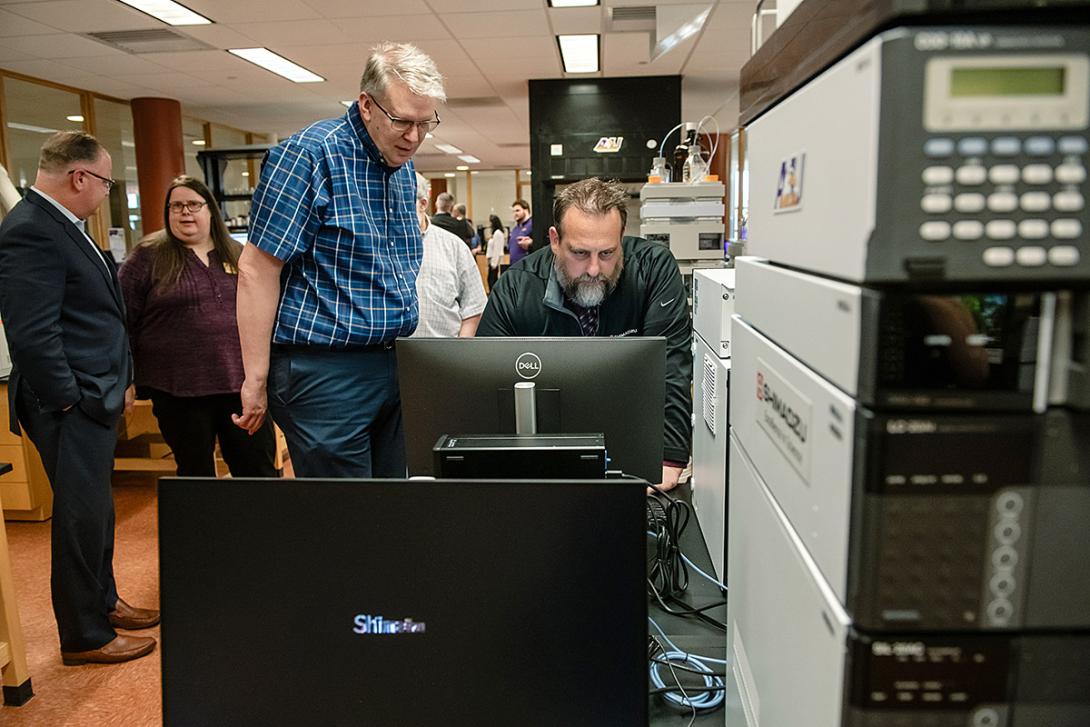
Jeff Weidenhamer, the Trustees’ Distinguished Professor of Chemistry, is thrilled to start working with the new instruments, which will make his groundbreaking research more efficient and AU even more appealing to aspiring scientists.
“One of the things we pride ourselves on is to give students hands-on experience with state-of-the-art equipment. Students come here because of the instrumentation we have in lab that they know they are going to get trained on,” said Weidenhamer. “This will help us to continue to attract excellent students.”
As for the SPARQ partnership, it will serve as a bridge between academic research and applications development. AU faculty and students will consult and work with Shimadzu’s scientists and industry experts on various projects. This unique educational opportunity will be mutually beneficial.
“It is an honor to be part of the Shimadzu SPARQ program. Not only will the new equipment help to sustain and to expand our chemical instrumentation laboratory, but this initiative is a great step forward in our deep-rooted efforts to provide hands-on opportunities for scientific study. We are excited about this truly transformative partnership,” said Rebecca Corbin, Ph.D., chair of the department of chemistry, geology and physics at AU.
Shimadzu selected AU as an award recipient because of its proven track record of outstanding science student preparation and its potential for tremendous growth.
“Shimadzu is delighted to establish this partnership with Ashland University. Through this collaboration, we aim to elevate their already outstanding chemistry program by providing cutting-edge instrumentation,” said Dave Jorissen, sales director at Shimadzu. “Our commitment extends beyond technology; we look forward to fostering continued collaboration with Ashland’s incredibly talented students and faculty. We view this as the beginning of a long and mutually beneficial relationship.”
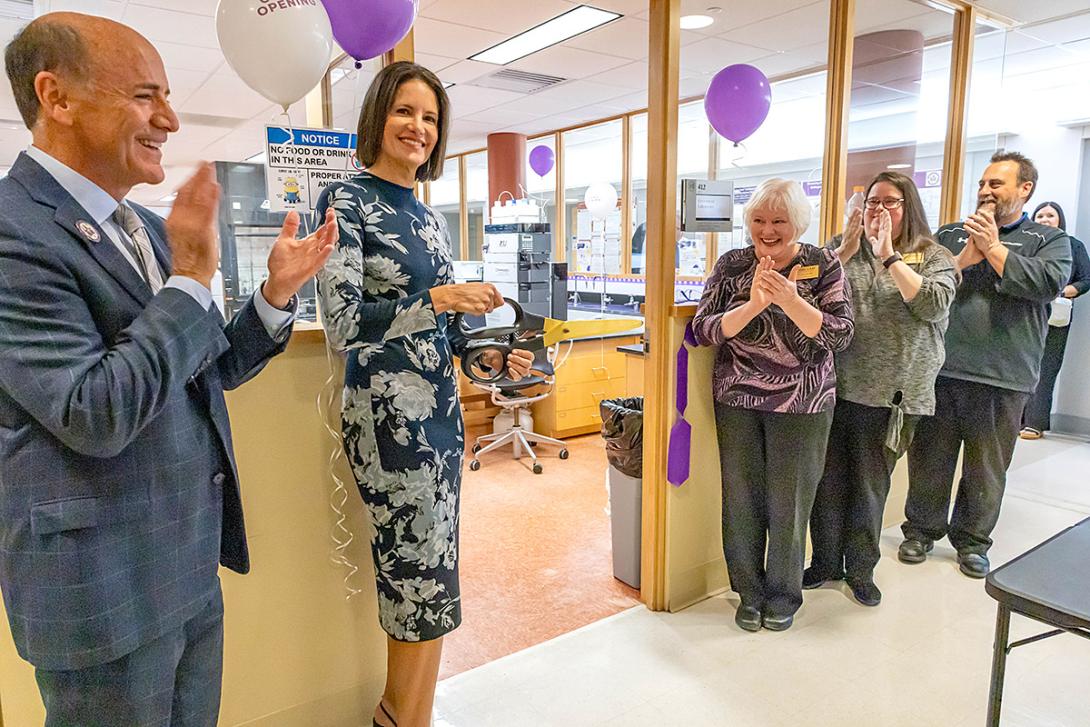
This partnership and the new equipment were made possible by a lead gift from Dawn Swit ’92, who labeled it an “easy decision” to be a part of.
“Being in a science-based field, I understand the company or academic institution … is only as good as the level of the equipment that they have,” explained Swit, who recently retired from a highly successful career in the information technology and insurance business. “If a (student’s) resume doesn’t show that they’ve worked with the equipment their industry wants them to have, they are at a disadvantage. So, this will not only help (Ashland) attract students, but it will help the graduates get better jobs. And, Shimadzu seems like a great partner. Meeting with the rep and the engineer, I’m even more excited what this will mean.”
During an April 13 ribbon-cutting ceremony and visit to AU, Swit was excited to see how “the campus has really continued to grow” and looks “even more amazing than when (she) was here.” And, she is very much looking forward to seeing the impact of the Shimadzu partnership.
“I love it. I’m so excited. It gives me goosebumps to think that there are going to be students in here grinding away at 11 o’clock at night on a Tuesday trying to work on their samples and finish a project to be able to turn in. It’s fantastic,” she said.
Also making significant donations to the Shimadzu partnership were Jeff Gorman, Sherrill Hudson, Richard Metz and Donald Sens, as well as the dean’s office of the College of Arts and Sciences and the department of chemistry, geology and physics.
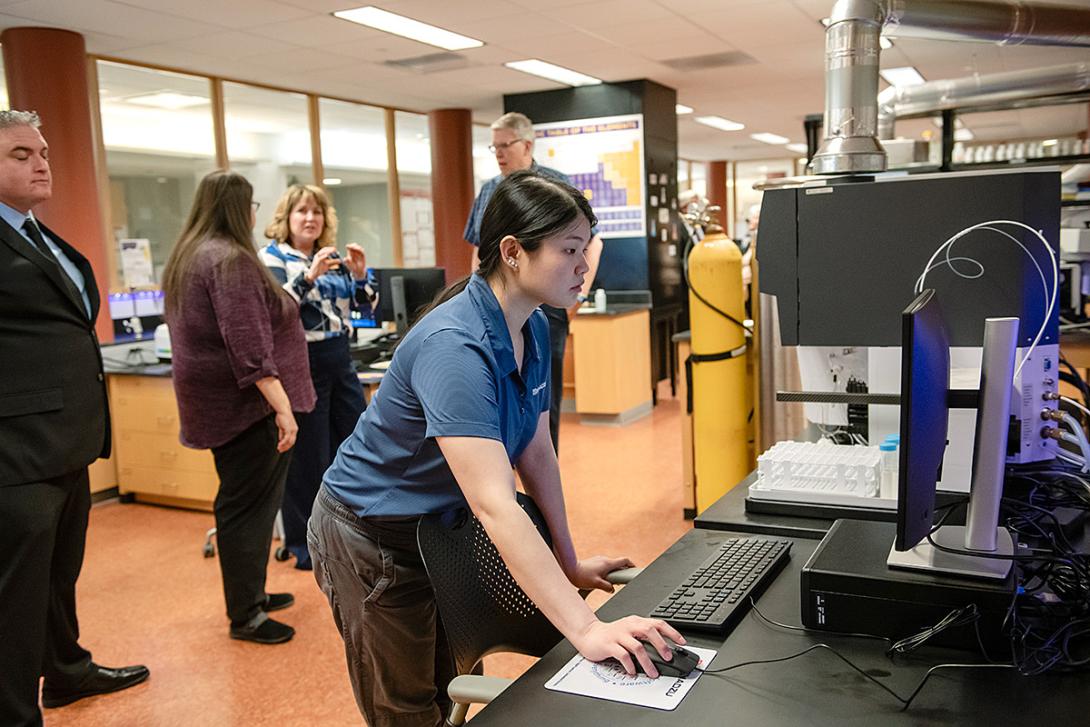
Shimadzu Scientific Instruments (SSI) is the American subsidiary of Shimadzu Corporation, headquartered in Kyoto, Japan. Founded in 1875, Shimadzu is a $3.5 billion multinational corporation with three major divisions: Medical Diagnostics, Aerospace/Industrial and Analytical Instruments. In the United States, SSI has a network of more than 50 locations providing local and regional sales, service and technical support. Visit ssi.shimadzu.com for more information.
Ashland University is a mid-sized, private university conveniently located a short distance from Akron, Cleveland and Columbus, Ohio. Ashland University (www.ashland.edu) values the individual student and offers a unique educational experience that combines the challenge of strong applied academic programs with a faculty and staff who build nurturing relationships with their students.